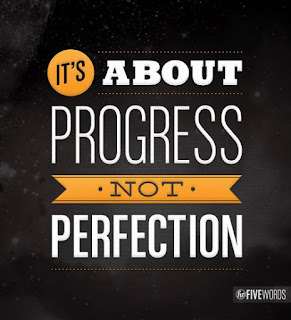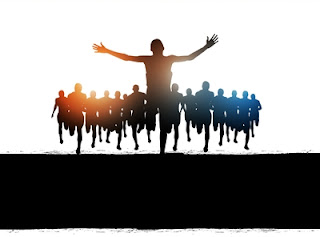Forgiveness - Part 4: Myopia, Humility, and Relationships
Tunnel Vision vs. Humility
Your
life is epic.
Homer’s The Odyssey tells the ten-year journey
of a man trying to find his way home to his kingdom, his wife, and his
son. Like all epic tales, upon the
journey Odysseus confronts many “monsters of depravity.” Every monster represents a trait within
Odysseus he must confront and overcome, traits like pride, greed, and lust.
On one
occasion Odysseus confronts the Cyclops, Polyphemus. The monstrously large Polyphemus doesn’t respect the
gods. In other words, he has no humility,
and he has no concern for things of the heart or spirit. He represents the animal nature of
humanity. He cannibalizes several
of Odysseus’ men to placate his unchecked appetites. The Cyclops’ every action is concerned with only one person:
himself. He has one eye, meaning
he has no depth perception (He is shallow!). He focuses solely on the surface of things: filling his
belly, getting what he wants, drinking to the point of drunkenness. He is full of pride.
Polyphemus
suffers from myopia, a medical condition
resulting especially in defective vision of distant objects, or a lack of foresight, a narrow view
of something. He has no
vision for distance, for the future.
And wisdom is vision! He
does not see the negative consequences of his self-centered actions. He does not learn from his past and
plan for his future. He practices
instant-gratification, and ends up suffering humiliation at the hands of the
seemingly insignificant Odysseus.
Odysseus and
his men escape when they use a sharpened pole to stab the Cyclops in the eye
after the “monster of depravity” falls asleep, drunk from wine Odysseus serves
him. Polyphemus’ spiritual and
intellectual blindness, from undisciplined habits and unrestrained
instant-gratification, leads to his physical blindness at the hands of
Odysseus.
In the
narrative Polyphemus mirrors Odysseus, who himself suffers from myopia. As he and his men escape on their
ships, Odysseus taunts the Cyclops after having blinded him, and in the
taunting nearly causes the death of himself and his crew as Polyphemus hurls a
mountaintop in the direction of the ships. Like the Cyclops, Odysseus also believes he does not need
the gods, and he can do everything on his own. He is blind to “the seventy-seven horrors” within ( See: Forgiveness - Part 1). He is filled with pride, lacking any
humility whatsoever.
The encounter
with the Cyclops is Odysseus’ personal encounter with his myopic view, his
inability to see the consequences of his arrogance and self-centeredness. It takes him several more episodes to find
humility. From this episode we
learn the importance of discipline,
humility, and the grave consequences of the choices we make every moment.
The Three Most Important People in Your Life
Think
of the three most important people in your life. Write them down right here, right now. If you have several
siblings or kids, sorry, you will have to choose. Do this before reading the next paragraph. Go!
___________________________________________
___________________________________________
___________________________________________
Now, are you
on that list? If not, add your
name. You must be on that
list! Just make sure you’re not the only one on that list!
Forgive
yourself. Love yourself. Once you forgive and love yourself, only
then can you love and forgive others.
Forgiveness is
the antidote for resentment, resistance
and revenge. Forgiveness brings protection. Mercy is new every morning![i] When forgiveness goes before me in all
my actions and relationships, I am protected from my self-destruction. I can truly live, which is to say, I
can truly love . . . myself and others.
Are you guilt-driven
or grace-driven? It’s time to make
The Shift. Live a grace-full
life. Open your eyes, live your calling,
and walk in your Greatness.
Begin the revolution within . . . The Greatness Revolution!












































